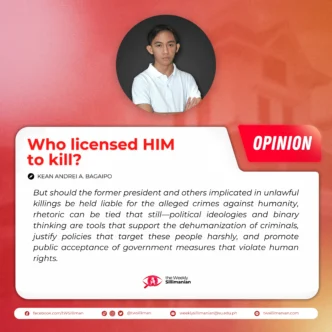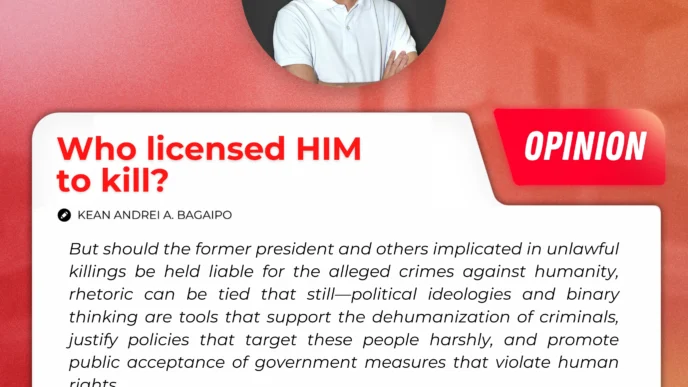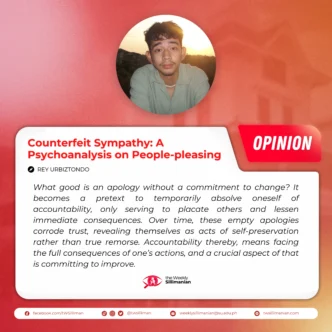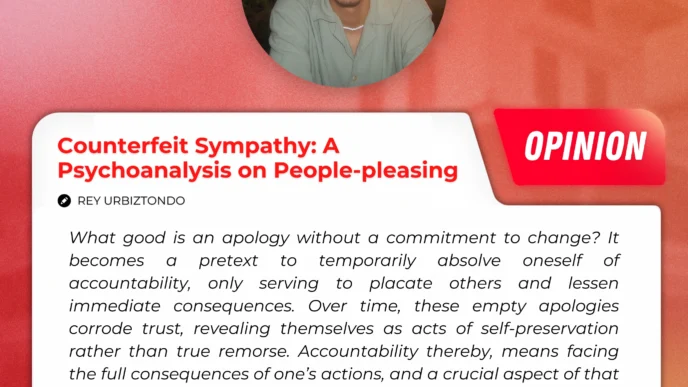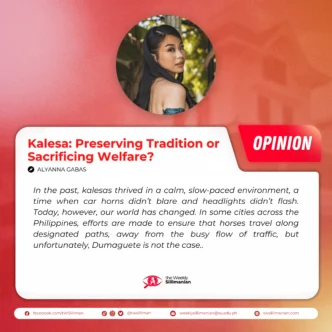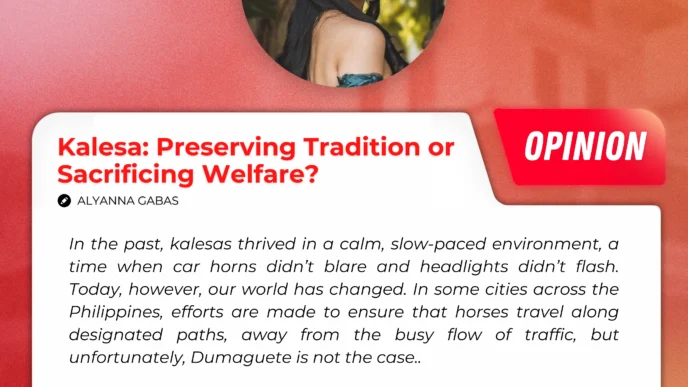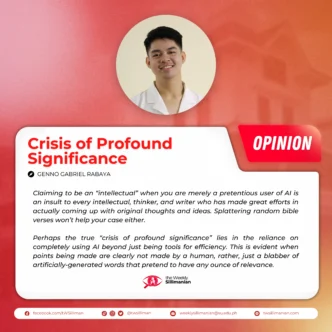By Yra Suarin
A weird and awkward silence fills the atmosphere right after you argue with your family about politics. It’s like a routine now—you say something, they reply something back, voices raise a little, and suddenly you’re left staring off into space, wondering how things got so tense over the people in power who, for the most part, won’t ever hear your name.
This happens more often than people like to admit, especially to young people who grew up thinking their family shared the same values. Then one day, you find out they support a politician you can’t stand, someone with no strong educational background or whose decisions you believe are harmful. And when you try to speak up, you’re met with lines like, “Bata pa kaayo ka, wala pa kay nahibaw-an,” (You’re still so young, you don’t know anything) or “Gi-daot ra na siya.” (They’re just trying to ruin his/her reputation)
And if you try to explain why it feels wrong or why you can’t just stay quiet, they shut you down with the usual: “Bastos ka.” (You’re disrespectful)
Truth be told, I just can’t keep quiet knowing people—innocent people—are affected. So, what happens when politics clash at home?
It’s Not Just About Politics Anymore
At some point, it stops being just about party colors or slogans. It becomes about the farmers who never got the land they were promised. The workers who still don’t earn enough to feed their families. The journalists who were red-tagged for doing their jobs—for reporting the truth, for refusing to look away. And for the victims whose families never saw justice.
These aren’t just headlines—they’re real lives affected by those in power. It’s not just about politics anymore. It’s about empathy, justice, and not staying silent while others suffer.
Disagreement does not equal to disrespect
One thing that should be clear is that disagreement doesn’t mean disrespect. However, in many Filipino households, voicing opposition to a parent or elder is still seen as being “bastos” or “ungrateful.” This creates a difficult situation—how do we speak up or inform them about political issues without being labeled as the “walay batasan nga anak”? (Disrespectful child)
It will never be easy to counter the arguments of your aunts, uncles, and even your parents, who are somewhat blinded by their loyalties.
So, the answer? Learn when to speak and when to pause. Choose your battles.
Even if you cannot change their minds, what matters is that you don’t lose your own. We’re not trying to win arguments with our families. We’re trying to unlearn the silence we were raised in. We’re trying to imagine a better future and to fight for it, even if it means clashing with the very people who raised us. And you’re not disrespectful for having a mind of your own.



